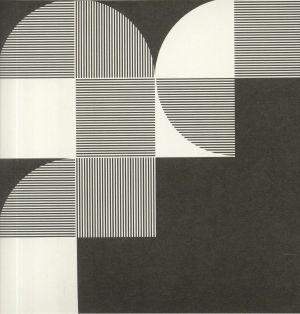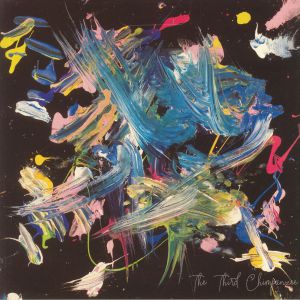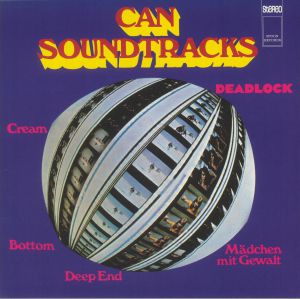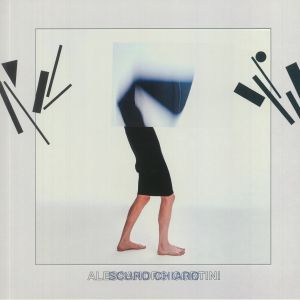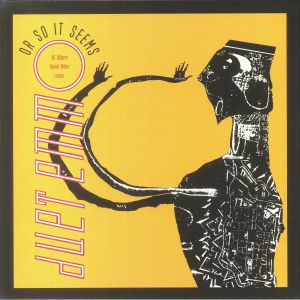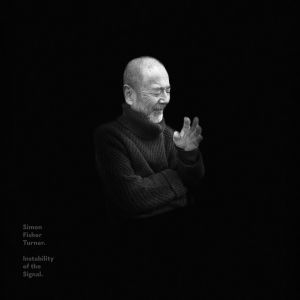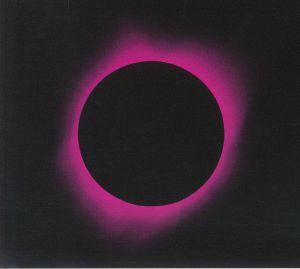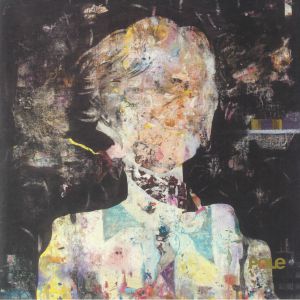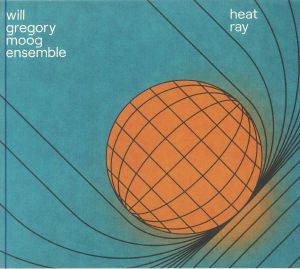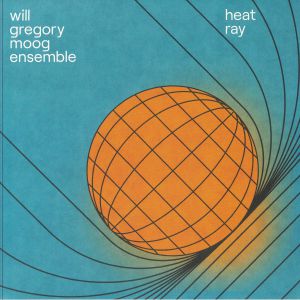Filter
Stock
Artist
Label
Featured
Release Title
Price
Back catalogue: Experimental/Electronic
Juno's full catalogue of Experimental/Electronic
Singles
Review: A Certain Ratio have returned with their most tight and funky album, possibly ever, recently, and it is steeped in 40 years of ACR DNA. Now you can grab two of the standout singles on this fine, limited edition white 7" thanks to Daniel Miller's essential Mute. Opener 'Berlin' is the second single from that album, ACR Loco, and has breezy vocals and Trillin riffs over tight drum work. 'Dirty Boy' is riddled with squelchy synth funk, with popping drums and a great vocal performance that will get any party vibing.
… Read morePlayed by: Juno Records Staff Picks
in stock $18.69
The Third Chimpanzee Remixed (limited orange & blue vinyl double 12" + MP3 download code)
Cat: L12MUTE 629. Rel: 20 Aug 21
Review: Founding member of Depeche Mode and celebrated singer songwriter in his own right, Martin Gore's The Third Chimpanzee EP is up there with some of the best solo work he has ever put out, with a particularly unique type of dance-synth vibe that you can't escape from no matter how hard you try. Now we have the remixes, which have a lot to live up to but come with plenty of promise.
After all, the chosen producers involved are all heavyweights in their own right, and were certainly ready to step up to the mantle here. Opening with a pair of tracks made different by two of Brazil's most revered techno heads - ANNA and Wehbba - from there we get Berghain bass experimentalist Barker, the fury of Rrose, and percussive wonder of JLin, and that's before we come to the likes of Chris Liebing and Kangding Ray.
… Read moreAfter all, the chosen producers involved are all heavyweights in their own right, and were certainly ready to step up to the mantle here. Opening with a pair of tracks made different by two of Brazil's most revered techno heads - ANNA and Wehbba - from there we get Berghain bass experimentalist Barker, the fury of Rrose, and percussive wonder of JLin, and that's before we come to the likes of Chris Liebing and Kangding Ray.
in stock $24.91
Martin GORE aka MG
The Third Chimpanzee (limited blue vinyl 12" + insert + MP3 download code in embossed sleeve)
Cat: 12MUTE 629. Rel: 29 Jan 21
Review: "I resynthesized some vocals that almost sounded human, but not quite. That's why I decided to name the track after a monkey." Depeche Mode mainstay, and one of the UK's finest modern musicians and songwriters, on his website Martin Gore cuts to the quick in explaining his latest solo release, which takes its name directly from Jared Diamond's book about the similarities between animal and human behaviour, The Third Chimpanzee.
It's certainly a pretty wild experience. Like the preceding lone wolf album, MG, here MG the guy gives us five tracks of synth goodness made on modular consoles. Visiting post-ambient, IDM and industrial noise, or rather luring those elements out of their natural comfort zones and into an atmosphere that almost feels as though you're lost in nature, it's a real opportunity for escapism at a time when many of us have never needed one more.
… Read moreIt's certainly a pretty wild experience. Like the preceding lone wolf album, MG, here MG the guy gives us five tracks of synth goodness made on modular consoles. Visiting post-ambient, IDM and industrial noise, or rather luring those elements out of their natural comfort zones and into an atmosphere that almost feels as though you're lost in nature, it's a real opportunity for escapism at a time when many of us have never needed one more.
in stock $14.39
Albums
Review: The music Venezuelan artist Alejandro Ghersi makes as Arca first came to the fore via UNO, the New York label who issued a trio of compelling releases in 2012. Arca's brand of glossy, high grade beat experimentation has seen him go on to work with Kanye West and FKA Twigs as well as release on venerated US indie Hippos In Tanks. An album deal with Mute may seem unexpected yet the UK label have a long and proud tradition of challenging conventions. Entitled Xen, Mute have described the 15 track set as full of "mercurial forms, fluxing unpredictably from smooth to spiked to sweet" and you wont get much of an idea from the soundclips. If you were charmed by the FKA Twigs set this is an album that will get your serotonins bubbling.
… Read morePlayed by: Wolf
in stock $22.69
Shadow Of Fear (limited gatefold purple vinyl 2xLP + insert + MP3 download code)
Cat: CABS 30. Rel: 20 Nov 20
Review: The arrival of a new Cabaret Voltaire album - the first since 1994 according to our records - should excite all those who hold the work of the pioneering Sheffield outfit dear. It's now a solo project from Richard H Kirk (he decided to keep the name after parting company with Stephen Mallinder in the late '90s), but the distinctive stylistic ticks remain (think paranoid sonic textures, metallic percussion hits, clear dub influences, plentiful spoken word samples, curious electronic noises and nods towards the industrial funk, EBM and post-punk). Naturally it's not as ground-breaking as Kirk and company's work in the '70s and '80s, but it is undeniably a Cabaret Voltaire album - and one that subtly updates the Cabs' particular brand of dense, dancefloor-ready paranoia for a new century.
… Read more in stock $24.91
Soundtracks (reissue) (limited translucent purple marbled vinyl LP + MP3 download code)
Cat: XLSPOON 5. Rel: 01 Apr 22
Review: Mute and Spoon Records continue in their CAN retrospective bout, following up the first two parts of the long-lost CAN live series ('Brighton' and 'Stuttgart' respectively) with further re-releases of their best known albums. 'Soundtracks' - their 1970 album in which every song was written with the intention of being included in various German films including Deadlock, Cream and Deep End - here gets a limited purple vinyl reissue. Functionally, though, the music could form a standalone conceptual CAN album in its own right. It's also full of the dramas that go hand in hand with your usual LP output; this album marks the point at which the original vocalist for the band, Malcolm Mooney, was replaced by Damo Suzuki.
… Read more in stock $24.91
Review: Vince Clarke (Erasure, Yazoo, Depeche Mode, The Assembly) presents his first ever solo album, Songs of Silence. As the album title suggests, it's a lyricless (though not vocal-free) instrumental album, and unlike anything you might've previously heard before from Clarke as an artisan of dynamic electropop. Rather, this LP brings with it a comparatively sober ambient electronic beauty, its unique characteristics lending it a category of its own. But two self-imposed oblique strategies underpinned its creation - first, that the sounds Clarke generated for the album would come solely from Eurorack (a modular synthesizer format introduced in the mid-90s), and second, that each track would be based around one note, maintaining a single key throughout.
… Read more in stock $40.69
Volume Massimo (limited transparent turquoise vinyl LP + MP3 download code)
Cat: STUMM 443. Rel: 27 Sep 19
Review: Trailed as a direct sequel to his previous solo album, 2017's "Avanti", "Volume Massimo" sees Nine Inch Nails member Alessandro Cortini offer up another immersive trip through droning guitar textures, repetitive synthesizer motifs, exotic sitar parts and fuzzy electronics. It's effectively a series of "maximal" instrumental soundscapes with sounds so large and layered they rise above the "meditative" tag pushed by Mute's PR team. This is no criticism, though, just a reflection that while contemplative at times, one of the most joyous things about the album is Cortini's ability to build thrilling walls of sound.
… Read morePlayed by: Joachim Spieth, Juno Recommends Experimental
in stock $24.91
Scuro Chiaro (limited clear vinyl LP + MP3 download code in spot varnished sleeve)
Cat: STUMM 463. Rel: 11 Jun 21
Review: Alessandro Cortini's solo album comes hot on the heels of his much loved collab with London's Daniel Avery. The title translates as 'dark light' and thematically the music contained within follows suit. The experimental artist best known as the keyboard player and bass guitarist of Nine Inch Nails and was recently inducted into the Rock 'n' Roll Hall of Fame for that work. But here he layers up near-dissonant guitars, pulsing synthetic surfaces and the contrast between light and dark. It's intense, but intensely beautiful.
… Read more in stock $22.42
Review: Italian musician, producer, composer, and instrument builder Alessandro Cortini unveils his latest release, NATI INFINITI, via Mute. Following up on 2021's Scuro Chiaro, NATI INFINITI is a forty-minute piece split into five movements, based on an immersive audio installation that Cortini originally created for the Sonar Lisboa festival in 2022, where it was presented across four floors of the Museu de Lisboa's Moagem. Marked by intense bouts of airy, tubular ambiences; and yet more sawwing tones counterposed with stark, angelic highs, giving rise to intensely beautiful arp sequenes, Cortini's latest is a real distillation of the sublime.
… Read morePlayed by: Juno Recommends Ambient/Drone
in stock $24.91
Or So It Seems (remastered) (limited gatefold white vinyl LP + 1-sided LP + MP3 download code)
Cat: LSTUMM 11. Rel: 18 Aug 22
Review: Graham Lewis, Bruce Gibert, Mute label founder and all round legend Daniel Miller came together to make this Duet Emmo record way, way back in 1981. Finishing the work a year later, it would be another 12 months before fans and unexpected listeners could access their accomplishment: a landmark experimental electronic release that also set benchmarks for minimal wave.
Perhaps what's so remarkable is the way in which Or So It Seems doesn't just play with, but offers an aural essay on timbre and resonance, depth and texture. There's not a huge amount happening on any of the nine tracks, but nevertheless they suck you in so far you'll find it difficult to remember which way to swim to resurface. Up or down, sideways or diagonal, whatever route it all winds up with the delightfully weird-but-fun 'Heart of Hearts'.
… Read morePerhaps what's so remarkable is the way in which Or So It Seems doesn't just play with, but offers an aural essay on timbre and resonance, depth and texture. There's not a huge amount happening on any of the nine tracks, but nevertheless they suck you in so far you'll find it difficult to remember which way to swim to resurface. Up or down, sideways or diagonal, whatever route it all winds up with the delightfully weird-but-fun 'Heart of Hearts'.
Played by: Juno Recommends Experimental
in stock $32.93
Review: Renowned composer Simon Fisher Turner's new album Instability of the Signal comes on limited edition black vinyl with extensive sleeve notes. It was produced with Francine Perry and across 13 tracks it delves into sound exploration inspired by Breda Beban, Hrvoje Horvatic, and poet Harold Pinter, whose works appear on the record. The artist integrates four elements: slivers, sounds, strings, and Singing where 'slivers" are brief audio snippets from Salford Electronics reimagined into track foundations. The album also features string arrangements by the Elysian Collective and overall the record reflects Fisher Turner's rich career as it blends experience with introspective soundscapes and personal expression.
… Read more in stock $24.91
Aurora (10th Anniversary Edition) (gatefold transparent red vinyl LP + poster + MP3 download code)
Cat: XSTUMM 368. Rel: 10 Oct 24
Flex
Nolan
The Teeth Behind The Kisses
Secant
Diphenyl Oxalate
Venter
No Sorrowing
Sola Fide
A Single Point Of Blinding Light
Review: Ben Frost's Aurora has inherited a rare, lucky crowning achievement: it's one of those "introductory" records - touted by new ambient music neophytes online - used to initiate rookies into the so-called true ordinances of real taste. Divesting ourselves of this knowledge for a hot second, we prefer to draw attention to the fact that Aurora has reached another milestone: its tenth anniversary. Frost, the renowned Iceland-based Australian composer, crafted a tense yet glacial record back in 2014: Aurora's implicit takeaway seems to be the that to explore a polar land isn't a far cry from the act of exploring another planet; little context is grafted onto the sheer, real cold sound of the record, though the references are tentative if obvious: 'Nolan' and 'No Sorrowing' allude to "epic" cinema imagism - the lost causes and "no, go on without me" moments native to the seat-edge nailbiter soundtracks of survival flicks - whilst the utter dystonia of 'Diphenyl oxalate' lends a chemical influence, recalling a harrowing, cliff-edge SOS scenario aided only by the dim glimmer of glowsticks and flares, brandished by hazmat-suited heroes, lost, stranded far from the research station. Frost now shares a limited edition red vinyl edition here, limited to just 300 copies and including alternative artwork as well as an exclusive download of his blistering 2014 live performance of the record, at Berlin's Berghain.
… Read more in stock $21.01
Review: While Ben Frost's work has long been marked out by deft-touch dark ambient, experimental instincts and clandestine aural textures, he's always thrown in surprise excursions and drawn on musical inspirations that other like-minded producers would fear to embrace. This latter characteristic comes to the fore on Scope Neglect, his first solo set for six years. Remarkably, it utilises the moodiness, weight and ten-ton guitar licks of metal - played by Car Bombs guitarist Greg Kubacki and bass-slinger Liam Andrews of My Disco fame - as a starting point. Frost naturally puts these through the sonic wringer, combining them with his own skittish, IDM-influenced beats, dark ambient soundscapes and razor-sharp electronics. The results are unusual, impressive and emphatically enjoyable, sitting somewhere between timeless electronica, Nine Inch Nails and experimental metal.
… Read more in stock $11.90
Review: Mute Records expand their indie major empire with the announcement of yet another album by Stefan Betke aka. Pole, 'Tempus'. The title of the album refers to the Latin word for time, which was later co-opted into the German language to refer to grammatical tense - thus, Pole's seven-suite album is literally a meditation on linguistic time. In comparison to his earlier albums, Pole's sound is unusually urgent on 'Tempus' - implicitly urging us to reconsider our warped notion of time through effects like dub delay - and incorporates more motifs from jazz than ever before.
… Read morePlayed by: Joachim Spieth
in stock $19.66
Review: This 40th anniversary reissue of The Pop Group's seminal Y Live album is a timely reminder of what a game changer it was. Hugely inventive and original upon initial release in 1979, it is still an alarming and arresting record of experimental noise. Manic vocal samples, caustic guitars, detuned synths and dishevelled drums make it a tribal and dystopian fusion of unease and terror. It includes tracks recorded in New York, Manchester and Brussels and all re-cut to half speed vinyl, with a special 12" including "She Is Beyond Good & Evil" and "3'38" as well as a special poster.
… Read more in stock $31.27
Electronic Music Improvisations Vol 3 (limited orange vinyl LP)
Cat: PSST 8. Rel: 28 Nov 24
Review: Daniel Miller and Gareth Jones head back into the studio and fire up the Eurorack modular synth for a third adventure into the great unknown of sounds and noises seemingly once heard in another dimension before being brought back to planet Earth with the hope of recreating whatever the rumbling or bleeping was. Electronic Music Improvisations Vol.3 is exactly that, building on the self-imposed musical parameters that guided the preceding two parts. Deep, otherworldly, vast, and unique, the beauty of Miller and Jones' Sunroof project is how it's also the opposite of all those words. Sparse, pared back, familiar, very much born of manmade machines, since these endeavours began we've crossed through the looking glass into a world that often feels like it's spinning out of human control, not least with the advent of music entirely made by AI. Here's proof people can still take complete charge of their creative process.
… Read more in stock $18.69
Rathlin From A Distance/The Liquid Hour (2xLP with obi-strip (indie exclusive))
Cat: STUMM 514. Rel: 03 Apr 25
Review: Breton artist Yann Tiersen's new album is divided into two distinct parts, each with its own identity. Rathlin from a Distance features eight introspective piano pieces named after locations Tiersen visited during his 2023 sailing tour, such as the Fastnet Lighthouse and the Faroe Islands. The music evokes introspection and tranquillity throughout and creates a meditative atmosphere that makes a lasting and cathartic impact. In contrast, The Liquid Hour is an expansive blend of electronic and psychedelic rhythms born from Tiersen's reflections on political and social change during his time at sea. The section's haunting melodies and Emilie Quinquis' vocals make a great counter to part one.
… Read more in stock $34.31
Review: The Will Gregory Moog Ensemble's debut album, Heat Ray, is a riveting exploration inspired by the ancient Greek mathematician Archimedes. Recorded on analogue synthesizers alongside the BBC National Orchestra of Wales, the ensemble - led by Goldfrapp co-creator Will Gregory - brings together up to 14 talented players, including Portishead's Adrian Utley and Mute's Daniel Miller. Heat Ray fuses spirals of melody, circular structures, and intricate patterns, drawing inspiration from Archimedes' mathematical principles. The album's genesis during pandemic lockdowns reflects Gregory's deep dive into Archimedes' life, sparked by online lectures. With a lineup boasting instruments like the Minimoog and Prophet 6, the ensemble weaves a stunning superstructure of sounds, guided by Gregory's effervescent spirit of discovery. The result is a splendid blend of ancient history and modern innovation, where musical exploration converges with mathematical curiosity. Heat Ray not only pays homage to Archimedes' legacy but also propels listeners towards an endlessly fascinating future.
… Read morePlayed by: Juno Recommends Experimental
in stock $11.90
Review: The Will Gregory Moog Ensemble's debut album, Heat Ray, is a riveting exploration inspired by the ancient Greek mathematician Archimedes. Recorded on analogue synthesizers alongside the BBC National Orchestra of Wales, the ensemble - led by Goldfrapp co-creator Will Gregory - brings together up to 14 talented players, including Portishead's Adrian Utley and Mute's Daniel Miller. Heat Ray fuses spirals of melody, circular structures, and intricate patterns, drawing inspiration from Archimedes' mathematical principles. The album's genesis during pandemic lockdowns reflects Gregory's deep dive into Archimedes' life, sparked by online lectures. With a lineup boasting instruments like the Minimoog and Prophet 6, the ensemble weaves a stunning superstructure of sounds, guided by Gregory's effervescent spirit of discovery. The result is a splendid blend of ancient history and modern innovation, where musical exploration converges with mathematical curiosity. Heat Ray not only pays homage to Archimedes' legacy but also propels listeners towards an endlessly fascinating future.
… Read more in stock $24.91

 USD
USD





